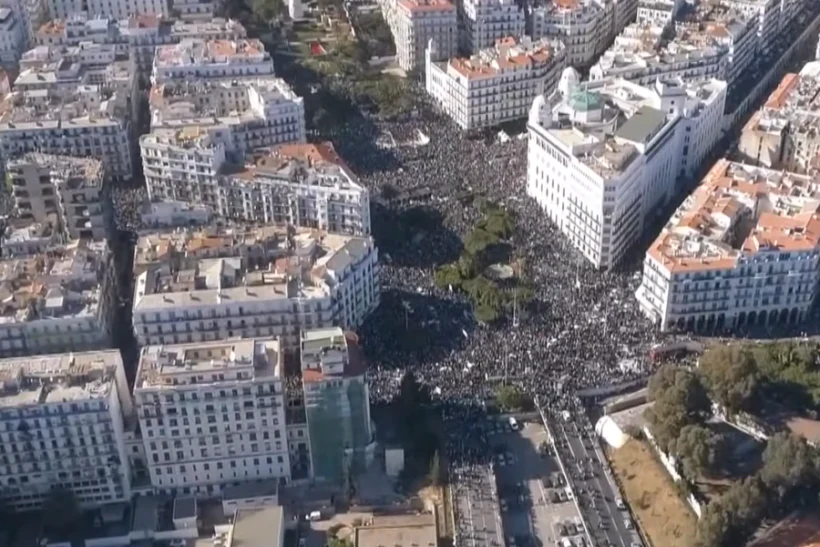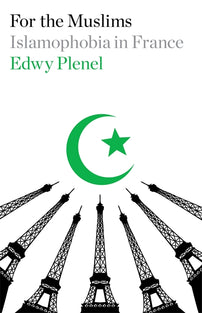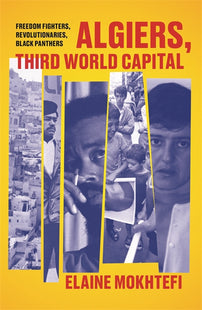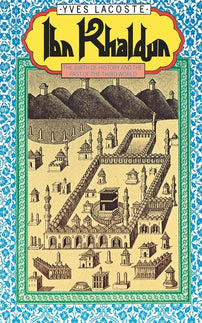The Algerian Revolution
The Hirak movement in Algeria continues to build momentum, bringing the streets of Algiers to a standstill. In this interview, Nedjib Sidi Moussa, doctor of Political Science at Université Panthéon-Sorbonne, discusses the composition of the movement, and highlights its limits and horizon.

The Hirak movement in Algeria continues to impose itself on city streets every friday, with the constitution brought to a stand-still. In this interview Nedjib Sidi Moussa, author of amongst other things of Algeria, Another History of Independence, reveals the class dynamics at work in the name of the Algerian ‘people’, criticizes the politics of the established Algerian left, and analyzes the demands of the movement while highlighting both its horizons and its limits.
Translation and Introduction by Hector Uniacke.
[book-strip index="1" style="buy"]You were in Algeria in March. Reading the press from over here one gets the impression that the whole of society is out on the streets. Is this what you saw?
Yes, that’s true. Every Friday the majority of Algerian society is present, with all classes, sexes, and generations mixed in. This is unheard of in the history of Algeria. Before the first demonstrations–not, as reported, on the 22nd February but a few days earlier in Kherrata in the wilaya of Béjaïa–there was an almost total demoralisation in the country. The fact that there was no repression at that time no doubt emboldened others to come out onto the street. All of Algeria was on the street, but not necessarily with the same aspirations, and with confused and contradictory methods and perspectives. Millionaires and leaders of political parties, whose attitudes had until then been ambiguous, joined the demonstrations, even if some of them were heckled. Certain people came with radical agendas regarding democracy and individual liberties. Others, who made themselves heard more and more, foregrounded more conservative demands concerning culture, language, and the unitary nature of the state.
The emergence of this movement could only occur along with all of the paradoxes and tensions within Algerian society, tensions that have not been able to crystallize freely over the last few years, or even since independence in 1962. Without wanting to idealise formal democracy, spaces of competition and public expression were extremely rare. Any rally in the streets of Algiers risked repression and dispersal by the police. Elections were systematically rigged. Today there has been training in the confrontation of ideas, projects, and practices. This is one positive aspect of the movement–even if the radical aim of a complete rupture with the regime, typified by the slogan ‘Get rid of them all! [qu’il dégagent tous]’, has not yet been borne out by actions equal to the demand. Unlike the movement of October 1988 or the ‘Black Spring’ in Kabylie in 2001, the offices and premises of the FLN have not been vandalised, taken over, or squatted by the protestors, which would have been one way of giving some content to the slogan ‘FLN get out [FLN dégage]’. Needy families could have been housed there. Almost nothing has happened in terms of direct action. This raises questions over the self-limitation of the movement and the desire to maintain its non-violent character or to avoid physical confrontation. Although this is perhaps understandable given the repression that Algerians lived through in the 1990s. For the moment, then, we have very radical aspirations with only very moderate practises to realise them.
Certain parts of the opposition want to avoid issues that generate conflict, namely social, sexual, cultural, or religious ones. Even relatively radical democrats have said: ‘let’s first stay unified against the fifth mandate, and then we’ll come round to those questions.’ We know what that means...It’s in the interest of the liberal bourgeoisie, which wants to free itself from the tutelage of the Army and the State, and which has exercised a kind of non-affirmed leadership position since the beginning of the movement, to support exclusively democratic slogans and avoid at all costs the social question. Its spokespersons have even tried to pass austerity measures all while claiming to speak for the popular will.
Beyond the Friday demonstrations, contestation seems to have been structured around professional bodies: lawyers, journalists, students. Is this what you are talking about?
These are the elements of the movement that have been emphasised by the media and the petit bourgeoisie. In fact, these social groups are assimilated to the elite. It is true that lawyers and magistrates were out in the street towards the beginning of the movement, in its most euphoric phase, but, alongside that, between each Friday there have also been strikes by workers. Though they have remained local, they were not properly covered by the media or those networks which claim to be on the left but who have not played their part in covering social struggles, and which have been occupied with strictly political stakes.
That said, we are yet to see an uprising of the exploited and unemployed. There were nonetheless sit-ins and protests here and there, and sometimes brief occupations by the unemployed demanding employment. This was the case for example in the south of Algeria or in the steel site at El Hadjar. Spontaneously, outside of any organisational frame, these unemployed people put forward the demand for work. Those who, since the start of the movement, have said it is simply a democratic protest–political and non-violent, without any social concerns–were proven wrong by the facts.
You are very critical of the politics of ‘the left of the left’ in Algeria. Can you explain why?
One thing that has prevented a proper articulation of the democratic and social questions within a revolutionary perspective has been the fact that trotskyists and ex-stalinists, who still have a certain influence, have concentrated their energy on the reappropriation of the UGTA (the old single union integrated within the state). In effect, its leader, Abdelmadjid Sidi Saïd, was among those who supported a 5th mandate for Bouteflika, before taking the side of the Chief of the Army General Staff. But they remained within a strictly organisational framework and have not sought to go beyond the apparatus. Their objective was to prevent the holding of the exceptional UGTA congress announced in June. Yet the congress took place, which was a defeat for them.
Further, the new secretary general of the UGTA, Salim Labatcha, is an old leader of the Parti des Travailleurs [PT – Workers Party]. The PT (a lambertist trotskyist party) had for a long time a very close relationship with the highly bureaucratic apparatus of the UGTA. The unionists who support a slightly more ‘class struggle’ position within the UGTA remain subordinated to its organisational frame. On the other hand, so-called autonomous unionists who operate outside of the UGTA, but who are not necessarily more antagonistic because of this, did not prioritize the social question. Their position was: ‘we are a part of the popular movement against the 5th mandate and the regime, but we do not want to appear to be an element of division.’ According to this argument, workers and the exploited shouldn’t act in their own name, and the question of the strike should be posed only later, according to the circumstances of the moment.
I believe this was a wrong move. For, by doing this, they wholly subordinated themselves to a politician’s agenda. Besides this, scattered and localised movements, supported at times by autonomous unionists or by the UGTA, have yet to coordinate at this level. This could, however, be an interesting perspective for struggle: a coordination of workplaces, administrations, and workers on strike or those without work. However, something that weighs on the exploited and which explains the very low level of self-organisation here is that they maintain certain illusions regarding organisations (unions, associations, parties, etc), national personalities, and even the action of the Chief of the Army General Staff. They have called into question Gaïd Salah’s self-professed role as an arbitrator who claims to be with the people while saying ‘don’t go too far, don’t have excessive demands.’ And it’s true that he’s been putting corrupt people, oligarchs, and leaders of political parties like Louisa Hanoune into prison. But at the same time, he has claimed to be on side with popular demands while showing himself more and more threatening and insulting towards the movement’s most determined actors.
[book-strip index="2" style="buy"]Yet the movement has already brought the 5th Mandate to an end, obtained Bouteflika’s departure, and the cancellation of the presidential election of the 4th July.
This movement has indeed seen victories since neither the 5th Mandate nor the elections scheduled for the 4th July took place. But I am on the side of the supporters of the social revolution, even if they are currently a minority in Algeria as elsewhere. In the face of the radical aspiration to bring down the regime, this movement can, and already should have, gone much further. It is not a question of minimizing the victories, but the regime and the state have not evaporated. Moreover, many demonstrators, despite the slogan ‘System get lost’, want the maintenance of the State, the army and the police. The relationship to repressive forces has not always been very clear given the weight they have within society. But a shift, caused by an intensification of repression, is underway. Algerian society has its own history and everything, according to its own rhythm, is being put back on the table. Most questions won’t be dealt with in a couple of weeks or months. But, equally, we know that time can play against us.
At the beginning of the movement, we heard slogans such as ‘the people, the army, the police, we are all brothers.’ The young working class kids who wanted to go straight to the presidential palace at Alger were demonized, accused of being agents of the regime and of wanting to taint such a beautiful, non-violent, movement…They were beaten, arrested, and imprisoned. Repression was there from the beginning, but we started talking about it when it began to affect other parts of the population less used to confrontations with the police. Over time, slogans emerged that were increasingly hostile to the police and the army. When the Chief of the Army General Staff started to intervene in a threatening manner, we heard more and more slogans against the army arguing that it should stay in its barracks. Added at times to this were demands for the resignation of Gaïd Salah or calls for a civil and non military state. All of this is part of a learning process, one that has shown the people that these institutions are in no way potential allies. I hope the same will go for the Algerian bourgeoisie, and that by doing so the people begin to refuse these kind of inter-class initiatives.
Where is the Algerian Revolution at today?
On the one hand, the movement did not burn out during Ramadan, contrary to what the regime has claimed. Yet on the other hand, I was told that young working class people withdrew. They were less present in the demonstrations because they were told that the movement was not theirs. Either because they were stigmatised, given the high level of class contempt by members of the petit-bourgeoisie or because their demands were not taken into consideration by the most visible figures in the movement. I don’t know if this withdrawal is definitive or if they will come back in another form, but I hope that they will soon express themselves by their own means. This withdrawal might explain why associations and political parties have since come to the fore to try to establish themselves as an alternative direction for the movement. In fact, they are already in negotiations. The army and the bourgeoisie want to have presidential elections as quickly as possible so that the economy restarts, in line with their own arguments and agenda, and that, ultimately, everything returns to how it was before to the benefit of the possessing classes.
On the 15th June, groups claiming to represent Algerian civil society, including democrats, religious currents, some feminists, right-wing unions, and neoliberals, with all classes and sensibilities mixed in, launched an extremely moderate platform. They adopted a minimal roadmap, since there was a clear cleavage between the partisans of the constituent thesis and those who wanted to prepare for presidential elections. They decided to call for a national unity government and for the creation of a commission that would oversee free elections. This call did not pose the social question, or call for equality between men and women, or the separation of the religious and the political. Obviously, this was to avoid upsetting the most conservative elements. A few days later, there was another which aimed to create a ‘democratic pole.’ It brought together Trotskyists (PST et PT), ex-stalinists (MDS and PLD), social-democrats (FFS), and more right wing tendencies like the RCD or the UCP. Their program appeared more progressive, because it dealt with the principal of equality between men and women and the social question, but overall it remains a reformist and statist program, with a nationalist imprint, which is quite common in Algeria.
Things will change this summer and after. The political parties want to show that they can constitute a viable and reassuring alternative for the ruling classes and the Algerian state’s international partners, even though they are empty shells. Yet this should not lead us forget their capacity for nuisance and parasitism. Their fear is crisis. They don’t want to deepen the contradictions of the moment and to overcome them from a truly emancipatory perspective. The democrats and the left of the left are already offering an alternative to those who hold power. They are already negotiating even though they know where the army and the bourgeoisie want to lead them. In doing this, they have politically disarmed those individuals who are prepared to go further but who are still subject to their influence, whether directly or indirectly. That’s why we must develop our critique on clear foundations, for self-organisation from the bottom-up, and outside of bureaucratic structures. When we work towards the transformation of society and the destruction of all forms of power, we cannot be satisfied with dated political recipes or with watchwords – such as the constituent thesis – already transcended by the situation.
[book-strip index="3" style="buy"]But if we move from a repressive society, such as the one governed by the FLN since 1962, to a vaguely democratic society with rights won by a popular movement, doesn’t this constitute an important move forward for Algerian society, and for Algerians themselves?
Every conquest, every thing obtained, every step forward is already a victory. The fact that Bouteflika did not put himself forward, that the July elections did not take place, is already an extraordinary thing. The fact that millions of people have come out into the street, at times occupied spaces, and have come together without being dispersed by the police is a huge thing, in relation to the former situation where despair was dominant. It’s worth reiterating: those people who are today in the streets, trying to intervene, express themselves, and come together are often those who were about to leave only a few months ago. They were ready to leave Algeria. There was no point for them, it wasn’t worth fighting for the Algerian people if it was going to accept the permanent humiliation of a fifth mandate.
But with this movement, a huge range of society has protested for the first time. And not only young people. It is this that has given Algerian society a lesson in resistance. And this is also why what we are in is a revolutionary process, which means that we also cannot ignore the counter-revolution. Since 1962, society has changed, has been broadly urbanised, with the development of a female workforce and education for women. Today, the majority of students are women. This hugely changes things, even if there is still a push back by religious and patriarchal institutions that try to obstruct the real movement of society towards freedom and emancipation. Political parties, associations or organisations on the left of the left also reproduce practises that they denounce in the regime: authoritarianism, bureaucratism, censoring, violence, sectarianism, etc. If we don’t draw a balance sheet of what the Algerian left has and hasn’t done, there will be no progress possible.
So, to come back to the question, why content ourselves with limited gains in the knowledge that they could be very quickly pulled back and destroyed by the new power or the new coalition that will establish itself? These forums of civil society, by seeking an interclassist consensus, or one between the right and left, secular and religious, feminist and patriarchal, are already limiting themselves to the possible and the thinkable, with their insipid and minimal programs. Today, a new generation is ready to free itself from those burdens that the previous generations did not manage to relieve themselves. The new generation is ready to go further than the previous generations and push back against taboos and constraints. It’s on these dynamics that we need to focus, even if they may seem minoritarian and confused, to push the process as far as possible. I’m optimistic, but we mustn’t be mistaken about alliances, about perspectives and about what we are trying to build.
With such a big and lasting movement, have we seen the emergence of new forms of organisation amongst the population to channel their contestation? Is it complicated as in France with the yellow vest movement?
There are certain comparisons to be made with the gilets jaunes, though obviously we are not at the same level of intensity and large-scale presence in the streets. Each comparison requires evidence of the differences between these dynamics. Nevertheless, they have in common a tendency towards degagism and a strong suspicion of organisations, even of organisation itself. It’s a characteristic of our time linked to the decline of the workers’ movement and the disenchantment with unions and political parties. It’s an international dynamic. The other aspect that the two have in common is the focus on weekly demonstrations, protest that ultimately do little to disturb every day.
I see two other common elements. The political subject put forward is that of the ‘people’, with all the ambivalences that entails. Forms of interclassism and nationalism which express themselves along with all the myths and ambiguities around the memory of the French Revolution of 1789 or the anticolonial revolution in Algeria. The last common aspect is the use of the new technologies, social networks and Facebook, as spaces of debate and organisation of the movement at the expense of assemblies or committees with a physical existence, which is clearly problematic.
[book-strip index="4" style="buy"]There was the ‘Assembly of Assemblies’ in France. Has there been a ‘Commercy’ in Algeria?
Not yet, to my knowledge. I think that was in part due to the wait-and-see position adopted by those forums of civil society, and today, by the political manoeuvres of the ‘democratic pole’ kind. People have called for self-organisation, but it’s not a matter of incantation: something does not come about just because we call for it. So there is no equivalent to Commercy, no more than there exists a libertarian or autonomous movement in Algeria. Individuals are trying things out at their level, pushing certain dynamics and circulating initiatives, with the goal being to overcome a certain barrier in order to weigh in on the situation and concentrate on what the movement does best.
The isolation and repression to which militants on the left of the left in Algeria have been exposed for decades is a huge burden. The Algerian left has a predominantly Leninist and nationalist culture. This has an effect on ways of analysing and of concretely intervening in the situation. There is a need for a theoretical and practical critique. But for the majority of the working population, there are no illusions about the political class, including the left. Self-organisation at the base, in places of work, of training and of life, are the key to the future of the movement.
Originally published on Rapports de Force.




